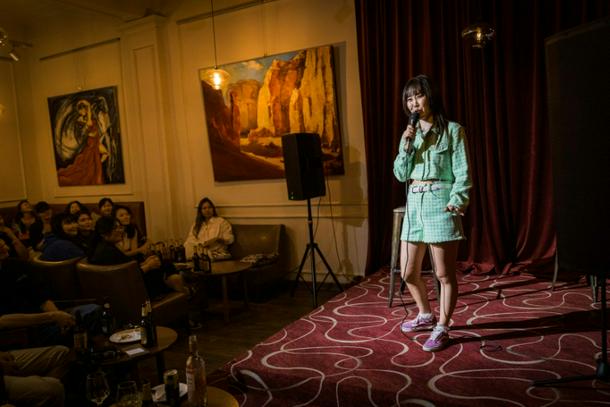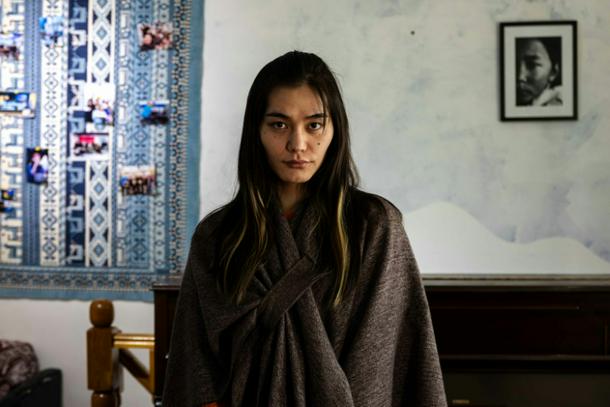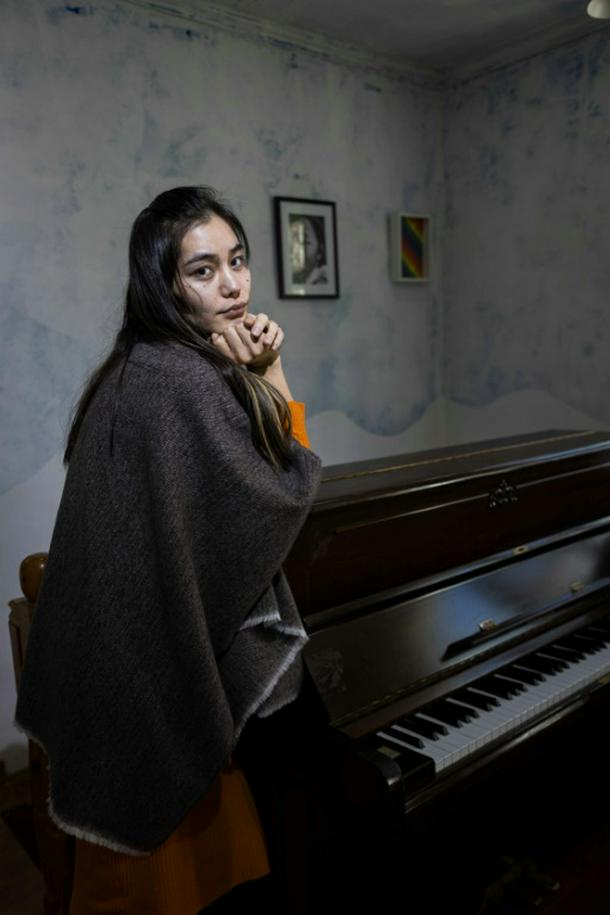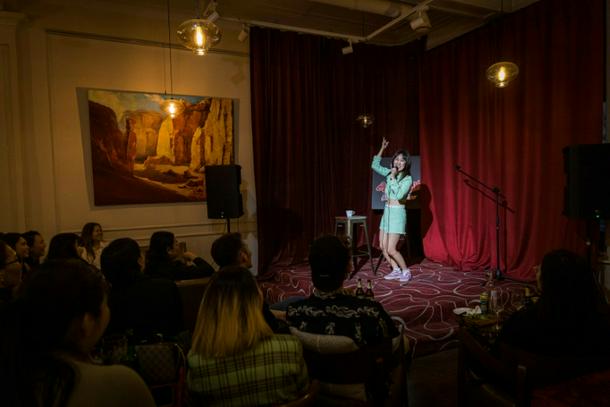
Khulan Batbaatar, a lesbian non-binary comedian performing in Ulaanbaatar, the capital of Mongolia
Ulaanbaatar (AFP) - Mongolian influencer Anudari Daarya looks effortlessly glamorous and carefree in her social media posts – but the classically trained pianist’s road to acceptance as a transgender artist has been anything but easy.
She is one of a growing number of Mongolian LGBTQ youth challenging stereotypes and fighting for acceptance through media representation in the socially conservative country.
LGBTQ Mongolians often hide their identities from their employers and colleagues for fear of discrimination, with a survey by the non-profit LGBT Centre Mongolia showing that only 20 percent of people felt comfortable coming out at work.
Daarya, 25, told AFP she has faced discrimination since she began publicly living as a woman at her arts university, where she said fellow students shunned her and she graduated without a single friend.
“I naively believed future artists and art teachers would embrace my transition,” she said.
After graduation, Daarya applied for multiple positions.

Mongolian influencer and transgender pianist Anudari Daarya at her studio, where she teaches piano to children, in Ulaanbaatar
She said she waited to hear back about teaching hours at Mongolia’s State Conservatory for three months before a contact told her that “the administration is saying someone like you can’t work with children”.
The Conservatory said in a statement to AFP they had realised they did not have a need to hire new teachers the year Daarya applied.
It selects staff “based on their skills and education without discriminating against religion, sexual orientation, and so on”, it said.
Daarya’s fortunes changed last year when a video of her giving a private piano lesson went viral.
The online attention transformed her career, with Daarya now working as a model for Mongolian fashion brands in addition to teaching and performing music.
- Power of storytelling -
For Khulan Batbaatar, a lesbian non-binary comedian who performs under the name Kena, performing on stage is a way to tell marginalised communities’ stories.
Kena is a member of “Big Sistas”, a comedy project founded by human rights activist Zolzaya Batkhuyag.
The Big Sistas are a rarity in the Mongolian comedy scene, which is dominated by men and often features sexist jokes.

LGBTQ Mongolians often hide their identities from their employers and colleagues for fear of discrimination
Kena spends their time on stage telling relatable jokes about New Year’s resolutions and financial troubles, while also sharing stories about their experiences of love and sex as a lesbian.
“When I was growing up, I never saw a happy LGBTQ person,” Kena told AFP.
“Every person I used to see as a role model suffered and had a tough life because of homophobia.”
As a comedian, Kena says they want to “show the teenagers who follow me as a role model that we can lead a happy and successful life”.
Zolzaya said she started “Big Sistas” to raise awareness of gender diversity and the fight for equality.
“When we simply talk and innocently complain (about minorities’ struggle), people don’t really get it,” Kena told AFP.
“But when we talk about our problems in jokes, when your storytelling is polished – it really works.”
- Tough reality -
While performers like Daarya and Kena help provide role models for LGBTQ Mongolians, the reality of life for many in the country remains bleak, activist Tseveenravdan Tsogbat told AFP.
Tseveenravdan is the director of Youth Lead Mongolia, which advocates for the health and rights of sexual minorities.
Discrimination in education settings often leads Mongolian LGBTQ teens – especially transgender youths – to drop out of school or be kicked out of their homes by their parents.
This limits their career prospects, forcing LGBTQ youths into minimum-wage jobs where they struggle to afford rent and food.
According to a 2022 survey by LGBT Centre Mongolia, 27 percent of LGBTQ Mongolians made less than the national minimum wage of 420,000 tugrik ($124) a month.
“That’s why we seriously tell each other not to come out in the winter,” Tseveenravdan said, when temperatures in the country can drop to minus 40 degrees Celsius (minus 40 Fahrenheit).
“When the public sees Daarya, they think the life of transgender people must be gorgeous… but people have no clue about the reality for sexual minorities,” he added.

Khulan Batbaatar performs under the name Kena and is a member of the all female comedy group "Big Sistas”
But Anuka Anar, a 22-year-old non-binary resident of Ulaanbaatar, was grateful that there are now a few public figures open about their gender identity.
“Some parents get worried and tell their children to hide who they are,” Anuka told AFP.
“They assume homophobia will make their children’s lives miserable forever, but when they see public figures from our community, they realise their children can be loved too.”